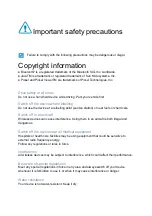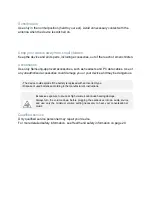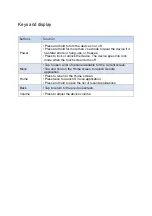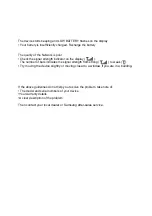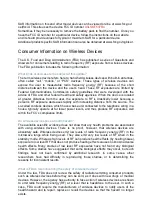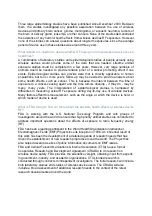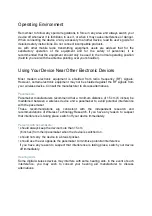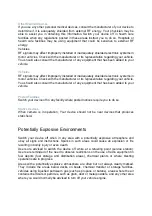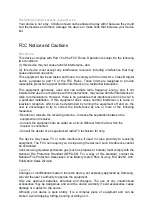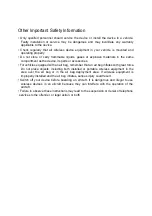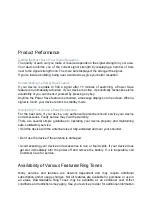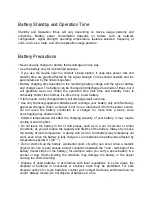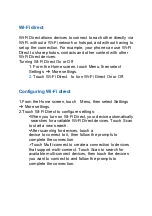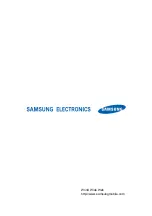
Although the existing scientific data do not justify FDA regulatory actions, FDA has urged
the wireless device industry to take a number of steps, including the following:
•”Support needed research into possible biological effects of RF of the type emitted by
wireless devices;
•”Design wireless devices in a way that minimizes any RF exposure to the user that is not
necessary for device function; and
•”Cooperate in providing users of wireless devices with the best possible information on
possible effects of wireless device use on human health.
FDA belongs to an interagency working group of the federal agencies that have
responsibility for different aspects of RF safety to ensure coordinated efforts at the
federal level. The following agencies belong to this working group:
•”National Institute for Occupational Safety and Health
•”Environmental Protection Agency
•”Federal Communications Commission
•”Occupational Safety and Health Administration
•”National Telecommunications and Information Administration
The National Institutes of Health participates in some interagency working group activities,
as well.
FDA shares regulatory responsibilities for wireless devices with the Federal
Communications Commission (FCC). All devices that are sold in the United States must
comply with FCC safety guidelines that limit RF exposure. FCC relies on FDA and other
health agencies for safety questions about wireless devices.
FCC also regulates the base stations that the wireless device networks rely upon. While
these base stations operate at higher power than do the wireless devices themselves, the
RF exposures that people get from these base stations are typically thousands of times
lower than those they can get from wireless devices. Base stations are thus not the
primary subject of the safety questions discussed in this document.
What are the results of the research done already?
The research done thus far has produced conflicting results, and many studies have
suffered from flaws in their research methods. Animal experiments investigating the
effects of radio frequency energy (RF) exposures characteristic of wireless devices have
yielded conflicting results that often cannot be repeated in other laboratories. A few
animal studies, however, have suggested that low levels of RF could accelerate the
development of cancer in laboratory animals. However, many of the studies that showed
increased tumor development used animals that had been genetically engineered or
treated with cancer-causing chemicals so as to be pre-disposed to develop cancer in
absence of RF exposure. Other studies exposed the animals to RF for up to 22 hours per
day. These conditions are not similar to the conditions under which people use wireless
devices, so we don’t know with certainty what the results of such studies mean for human
health.


